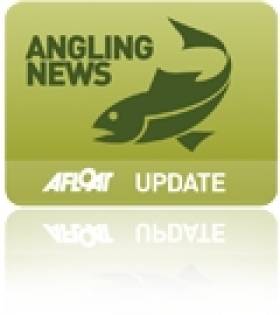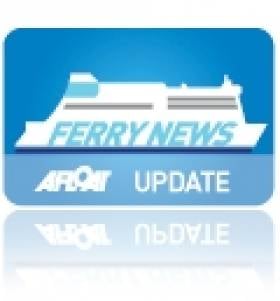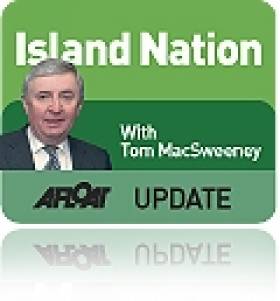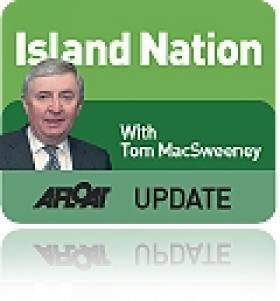Displaying items by tag: Blog
Go Fishing in Ireland - an 'Angler's Paradise'
DiscoverIreland guest blogger Kirsten Fruit has posted a quick guide highlighting Ireland's abundance of world-class angling spots.
"For years, fishing fanatics from around the world have found a haven of sorts in Ireland’s waterways," she writes, "and it isn’t hard to see why."
Ireland has it all, from deep-sea angling for bass or cod to trout or salmon fishing on rivers and lakes.
But it's not just for the experts, as there are many excellent angling guides throughout the country who make a business out of introducing newcomers to the sport.
"Having a guide adds 100 percent to an individual’s enjoyment on the river," says Ballynahinch Castle's master ghillie Simon Ashe.
DiscoverIreland has more on the story, including guides' favourite angling spots, HERE.
The Ferry Fortnight to "Seas the Opportunity"
This weekend sees the start of the National Ferry Fortnight (14-28 May) an initiative to heighten consumer awareness of the extensive ferry network operating to and from the UK, writes Jehan Ashmore.
Central to the National Ferry Fortnight campaign will be a series of promotional offers on ferry routes listed on www.discoverferries.com. The campaign logo will be featured on ferry members' own advertising and website campaigns to highlight the UK's broad network of over 50 routes.
For the first time, ferry passengers will be encouraged to blog and twitter their family and friends when crossing the seas.
Investment in recent years of more modern and versatile fleets has seen an increase in people travelling by ferry, with some 35 million passengers, eight million cars and over 140,000 coaches carried in 2010.
The event is organised by the UK-based Passenger Shipping Association (PSA) and members include Irish owned-ferry operators: Fastnet Line (Cork-Swansea), Celtic Link Ferries (Rosslare-Cherbourg) and Irish Ferries which operate on routes to Wales and France.
In addition the following PSA members (operating between them on Irish Sea, English Channel and North Sea services) are to participate: Brittany Ferries, Condor Ferries, DFDS Seaways, Hovertravel, Isle of Man Steam Packet Co. (IOMSPCo), LD Lines, P&O Ferries, Red Funnel, SeaFrance, Stena Line and Wightlink.
Will Election Promises Be Delivered On?
Fine Gael can, logically from the support which the party garnered in the General Election, be expected to dominate a Coalition Government. In that context, the question arises as to whether they will deliver on their pre-election manifesto commitment to re-establish the Department of the Marine?
The promise to do so was unequivocal, a clear undertaking that the situation created by the former Fianna Fail and Green Party Coalition which had decimated maritime issues by spreading them over several Departments of State, would be changed and all would be contained in one Department.
In the event of a Coalition being formed will we hear that "circumstances" have changed and adjustments must be made in the context of Coalition arrangements?
I had the opportunity to question Joan Burton of the Labour Party, one of the party negotiators, prior to the election at an event organised by the European Association of Journalists. She accepted that politicians had not paid enough attention to the marine sphere and said that this attitude should be changed and accepted that the nation could benefit economically as a result.
I hope that I am not being overly cynical towards politicians, born of long years of journalistic experience, in fearing that pre-election promises may be subjected to change.
• This article is reprinted by permission of the EVENING ECHO newspaper, Cork, where Tom MacSweeney writes maritime columns twice weekly. Evening Echo website: www.eecho.ieAn Irish Maritime Foundation
I wonder whether there might be interest in forming an Irish Maritime Foundation?
I raise the question having discussed the possibility with those who run the UK Maritime Foundation and whose views about the sea about the sea impressed me when I met them in London. The Foundation traces its history back to 1981 when shipowners, senior retired naval officers and people involved in the financial industry reacted to changes in British Government policy that were regarded as failing to protect the importance of the UK maritime industry. It is a registered charity with the purpose of promoting and raising interest in the maritime sector amongst the public, the media and Parliament. To do so it is involved in assisting development of maritime education, training and research.
The British are a magnanimous people in my view. It was an honour to accept the Desmond Wettern Award from the Foundation. Desmond Wettern was a distinguished UK maritime journalist for over 30 years and the awards were established in his name. This year the Society for Nautical Research joined the awards project.
In responding I used one of my favourite descriptions - "the Family of the Sea," which I have used on radio. It drew a lot of interest from those present. I believe there is a "family of the sea" which spans oceans and seas, linking those who appreciate the sea as essential to human survival.
"Everyone who has an interest in the sea would recognise that there are and will continue to be, increasing pressures on its use and on the exploitation of its finite resources, but also a number of opportunities," according to Rear Admiral Christopher Perry, Chairman of the UK Marine Management Organisation. Those views and others I discussed with some of those amongst the 200 attending the function, who came from various parts of the world. Professor Richard Harding of the Society for Nautical Research which is marking its centenary, expressed this opinion: "There is a disturbing sense of sea-blindness in the British Government, amongst the general public at large and in the media."
There is certainly sea-blindness in our Government and in much of the media, though I am hopeful that there is growing awareness of the importance of the marine sector amongst the general public. If Ireland had an organisation like the Maritime Foundation, I would be very pleased.
• This article is reprinted by permission of the EVENING ECHO newspaper, Cork, where Tom MacSweeney writes maritime columns twice weekly. Evening Echo website: www.eecho.ie



























































